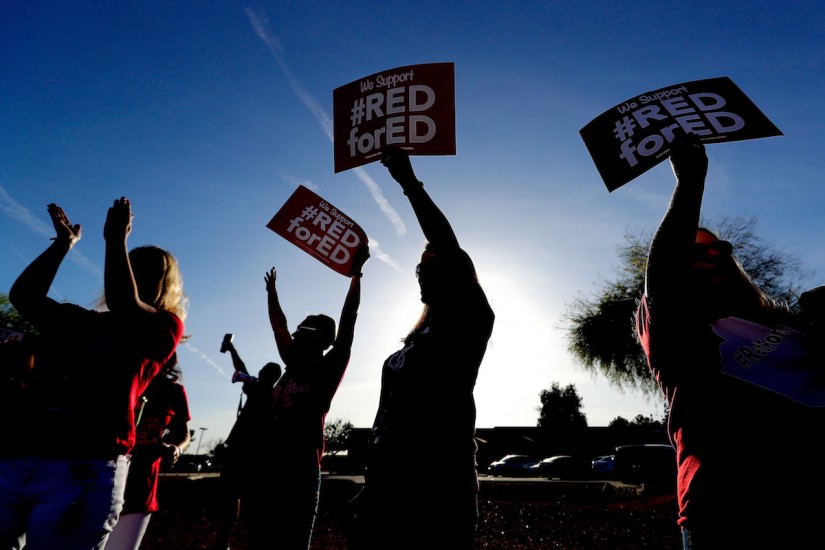It has been a very long time since the U.S. has seen a wave of teacher strikes. But in the past few months, teachers have walked off the job in West Virginia, Oklahoma, Kentucky, and now Colorado and Arizona.
The outbreak of labor activism has caught many people by surprise, especially Republicans. For decades, the party has successfully chipped away at the power of unions, including even all-powerful public-sector unions. And yet, with the possible exception of Colorado, these strikes have broken out in red states. Is that a sign of something?
To understand what may be happening — and why it may spell trouble for the political right — it’s necessary to go back in time to another moment in history when teachers went on strike.
Teachers generally didn’t go on strike for much of the 20th century. Even in the labor-friendly New Deal, teacher unions struggled to gain a foothold. The Wagner Act, passed in 1935, conferred collective-bargaining rights on private workers, but withheld them from public-sector workers.
Nonetheless as unions became entrenched in the postwar United States, the idea that public-sector employees like teachers should also have a right to organize became more palatable. In 1959, Wisconsin, long a leader in progressive legislation, became the first state to pass a law granting public employees the right to strike. Other states followed suit: 22 in all by 1970.
Throughout the 1960s and 1970s, teachers who acquired collective-bargaining rights went on strike at a remarkable rate. These walkouts tended to erupt in bastions of liberalism. New York City, for example, witnessed one of the first major strikes in the early 1960s, when labor organizers Albert Shanker and David Selden managed to unify teachers’ unions into a formidable, disciplined force.
Throughout the 1960s, teachers who went on strike simultaneously embraced many of the social movements of the era, particularly the civil rights movement. National teachers’ unions endorsed Brown v. Board of Education, and over the course of the decade, they became increasingly identified with various liberal causes.
